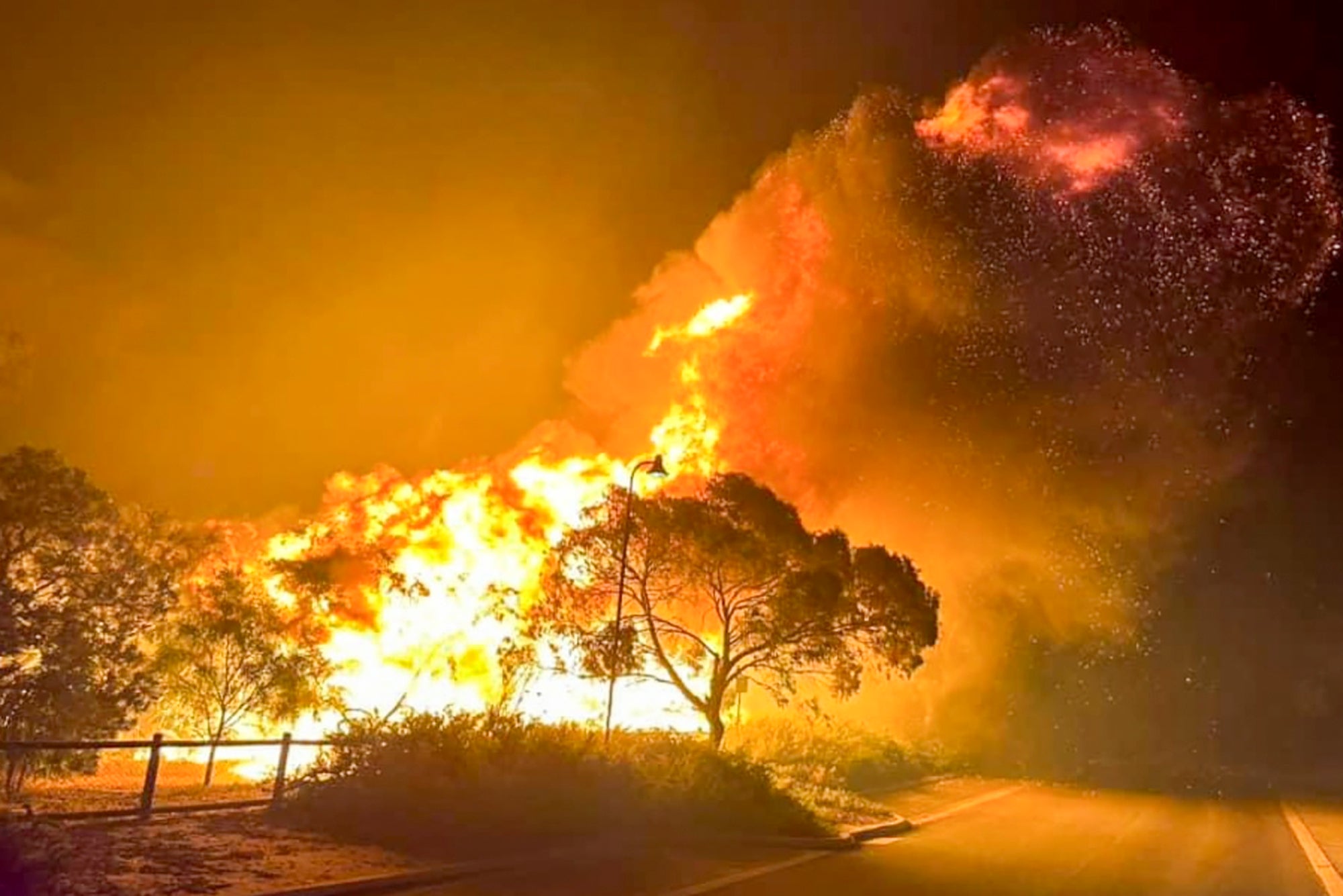‘Deafening cacophony of broken records’ as 2023 set to be hottest year on record
Searing temperatures, floods, wildfires and crop failure have been wrecking lives across the world with conditions expected to worsen
Your support helps us to tell the story
From reproductive rights to climate change to Big Tech, The Independent is on the ground when the story is developing. Whether it's investigating the financials of Elon Musk's pro-Trump PAC or producing our latest documentary, 'The A Word', which shines a light on the American women fighting for reproductive rights, we know how important it is to parse out the facts from the messaging.
At such a critical moment in US history, we need reporters on the ground. Your donation allows us to keep sending journalists to speak to both sides of the story.
The Independent is trusted by Americans across the entire political spectrum. And unlike many other quality news outlets, we choose not to lock Americans out of our reporting and analysis with paywalls. We believe quality journalism should be available to everyone, paid for by those who can afford it.
Your support makes all the difference.This year is expected to be the hottest on record after “a deafening cacophony of broken records”, the World Meteorological Organisation has warned.
April through to October saw record-high monthly temperatures in the oceans while July was probably the hottest month on land in the last 120,000 years, scientists believe.
Extreme flooding from Cyclone Daniel killed thousands of people in Libya, wildfires in Canada burnt 18.5 million hectares – an area bigger than England and Wales – and severe drought in Uruguay emptied reservoirs and pushed the country close to running out of fresh water.
Greenhouse gases continue to rise despite years of international government pledges to bring them down which is creating an increasingly hostile environment for human beings and wildlife by bringing fiercer heatwaves, droughts and storms.
Data up until October shows 2023 to have warmed 1.4C above the pre-industrial average, which is higher than the previous two hottest years of 2020 and 2016 and the final two months are unlikely to change this outcome, the WMO said.
Temperatures are likely to remain high going into 2024 due to El Nino – a naturally-occurring process in the eastern tropical Pacific that sees warmer water rise to the surface.

It adds to the warming in the atmosphere already caused by humans and leads to more severe droughts across areas like Indonesia, Australia, India, South Africa and the Amazon, increasing the likelihood of wildfires and making food harder to grow.
WMO Secretary-General Professor Petteri Taalas said: “Greenhouse gas levels are record high. Global temperatures are record high. Sea level rise is record high. Antarctic sea ice is record low. It’s a deafening cacophony of broken records.
“These are more than just statistics. We risk losing the race to save our glaciers and to rein in sea level rise.
“We cannot return to the climate of the 20th century, but we must act now to limit the risks of an increasingly inhospitable climate in this and the coming centuries.
“Extreme weather is destroying lives and livelihoods on a daily basis – underlining the imperative need to ensure that everyone is protected by early warning services.”
The WMO report is publishing its 2023 findings provisionally so that it can inform negotiations at the UN climate conference Cop28 in Dubai this week.
Its authors want urgent action from global leaders to hit the brakes on fossil fuel emissions, which is the main cause of the warming climate.
Carbon dioxide levels are 50% higher than before the Industrial Revolution which is warming the atmosphere and the ocean with the sea rising twice as fast now than in the 1990s because of melting glaciers.

Antarctic sea ice has also been at a record low this year with ice covering an area the size of France and Germany combined missing compared to the previous low record.
Swiss glaciers have lost 10% of their ice in the last two years, the WMO said, while those in the Pyrenees are likely to disappear completely in a few years, Spanish scientists have previously warned.
UN Secretary-General Antonio Guterres said: “We are living through climate collapse in real time and the impact is devastating.
“This year we have seen communities around the world pounded by fires, floods and searing temperatures.
“Record global heat should send shivers down the spines of world leaders.”